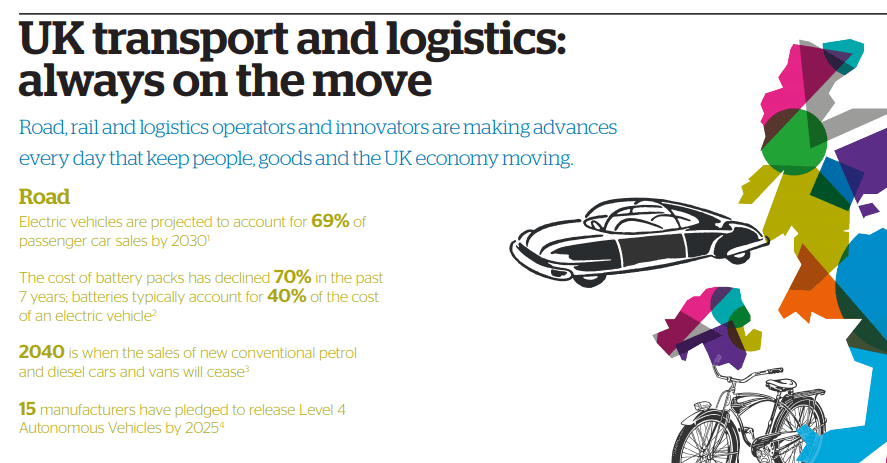Digital Disruption To Transform Personal Mobility In The UK
8 Sept 2022, 3:08 am GMT+1
The UK is on the cusp of a digital revolution in mobility which is forcing the creation of new business models, disrupting trends in personal mobility and reshaping global supply chains. The transport of the future must be safe, efficient in the movement of people and goods, and personal mobility should be at the very heart of a successful economy. At least, that is what can be extracted from the latest report,
released today by Atos, a company specialised in digital transformation. And because in the dawn of the Fourth Industrial Revolution, digital enablers are vital for transport and logistics providers to improve customer experience while optimising assets and reducing emissions. With new types of connected mobility services, partnerships are needed between providers to share data and invest in digital platforms.
“Increasingly with population growth and denser metropolitan conurbations, we see the need to support the mass movement of people and goods with efficient, effective and integrated multi-modal public and personal transport systems,”
said Kulveer Ranger.
“Transport operators are beginning to rely heavily on data: harvested both from within their own networks and systems and from the personal mobile devices of individuals. To realise a vision of truly personal mobility, vast amounts of data will need to be aggregated. This will be a huge technological feat for innovative integrators and digital architects.”
The Atos Digital Vision for Mobility paper sets out how digital technology has transformed the UK’s transport sector and considers the role of AI, automation and blockchain in determining the mobility solutions of tomorrow for road and rail, broader public transport and logistics.
 UK transport and logistics. Source: Digital Vision for Mobility report, Atos
UK transport and logistics. Source: Digital Vision for Mobility report, Atos
Contributions from ITS-UK, Google, Siemens, KPMG, Worldline, TfL, MyTaxi and TechUK explain how data is being used as a driver for intelligent infrastructure and how developments like IoT can be strategically deployed to create more reliable services and more convenient access for transport users, including the rail network. Commenting on the launch of the report, Adrian Gregory, Atos Senior Executive Vice President and CEO, UK & Ireland, said:
“More change is now underway across the transport and logistics industry than at any time since the invention of the combustion engine. Vastly increased computing power and hyper-connectivity are helping to transform the operation and maintenance of vehicles and national infrastructure.”
Mark Ferrer, Operations Director – Digital Railway, Siemens Rail Automation UK, added:
“Digital technologies are integral to the future of rail, enabling train operators and infrastructure owners to safely increase the capacity, reliability and efficiency of their networks and assets whilst increasing levels of passenger satisfaction. For operators and passengers, digital signalling and control systems together with advanced data and analytics are key to meeting intense demands while driving down costs – which can only be good for the UK’s economic future.”
The launch of Digital Vision for Mobility is being marked with a keynote address by Atos UK & Ireland SVP for Strategy & Communications and former Transport Advisor to the Mayor of London, Kulveer Ranger, to an audience at University College London. Introducing the paper to illustrate the future of transport in London, the address to business management students will underline the profound transformation experienced across the mobility industry, underpinned and enabled by digital technology.
Share this
previous
Optimizing Your Online Footprint - 5 Things to Include in Your Business & Professional Profiles
next
9 In 10 Companies See ‘Self-Service’ As The Future Of Customer Service